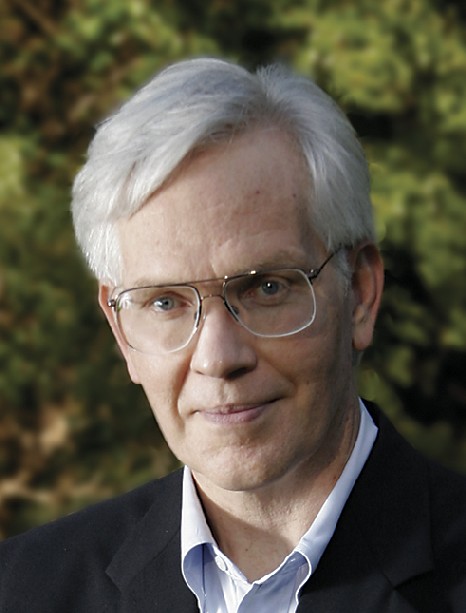Key words :
future energies,
climate change
,global warming
,alternative energy
,greenhouse gases
,mitigation
,adaptation
Why climate change adaptation could make things worse
23 Dec, 2009 04:38 pm
Because many of the proposals for adaptation to climate change require further extensive release of greenhouse gasses, they will only make climate change worse.
 |
The main strategy which suggests itself when addressing climate change is to reduce the emissions of greenhouse gases which are its main cause. Certainly, there has been much talk of reducing emissions up to 80 percent by 2050. Unfortunately, there hasn't been much concrete action.
As a result, most serious climate scientists agree that the Earth will experience at least some warming no matter what we do now and that some measures focused on adapting to the consequences of that warming are now advisable.
Perhaps the most widely agreed consequence will be a rise in sea level that will threaten low-lying coastal areas around the world. The consensus rests at around 1 meter by 2100, but the numbers are highly uncertain. What will countries do in response? Naturally, they will spend enormous sums of money to defend their coastlines. In the process they will create vast additional greenhouse gas emissions. Why? Because 86 percent of the world's energy comes from the burning of fossil fuels. Until that changes, adaptation strategies that involve energy expenditures will only reinforce climate change.
Other strategies include creating drought resistant crops and increasing irrigation. While some fossil fuels will be expended researching and testing such crops, this might be a low-impact strategy. But irrigation typically involves considerable energy use for pumping and the construction of storage dams or other facilities. Another problem is that many places will find themselves with less water available for irrigation due to changing weather patterns related to climate change. That would put increasing pressure on declining water sources. And, the fossil fuel energy used to draw from those sources will exacerbate the climate change problem.
But much of the adaptation will come from billions of individual choices rather than large-scale government projects or changes in policy. Even as the world's temperature rises, those with access to air-conditioning will simply demand more of it to keep their homes, offices and factories at acceptable temperatures. Of course, air-conditioning requires electricity, the majority of which is currently produced with fossil fuels. Naturally, this will only create a vicious cycle as the additional emissions associated with increased air-conditioning use create further warming which will in turn cause ever greater demand for air-conditioning.
Some will say that milder winters associated with a warming climate will offset the increased use of air-conditioning by reducing heating needs. This may be partially true. But the rise of air-conditioning use in already warm climates suggests that the net effect will be to increase electricity and thus fossil fuel use.
As ski resorts find less and less natural snow available, they have turned more and more to artificial snow which, of course, is produced largely with fossil fuels.
One curious development is the introduction of inflatable snowman yard decorations in my area of Michigan, previously known for its voluminous snow. While it still snows, and sometimes quite hard, southern Michigan has seen a trend of diminishing snow for nearly my entire adult life. That means that it is less likely that snow will be available to make a snowman on any given winter day. And, it is more likely that the snowman will be gone in a few days, melted by above-freezing temperatures that have become more the norm than the exception. The solution for many households is electricity-gobbling lighted snowmen which are continuously inflated by a fan.
The energy use associated with these adaptations may not seem all that significant. But when we take into account all the individual adaptions worldwide, these adapations likely constitute a worrisome human-generated feedback that accelerates global climate change.
Perhaps we can move quickly to non-carbon energy to power the world economy. Attempts to do so are rightly placed in the mitigation rather than adaptation category, that is, they seek to prevent rather than merely cope with climate change. And, that gets to problem at its root.
However, the most immediate effect of such a rapid transition would be to increase fossil fuel emissions since fossil fuels must now be used in the manufacture of wind generators, solar panels and the growing and processing of biofuels. The same can be said for the construction of nuclear power plants. And, nuclear plants, though they emit no greenhouse gases when they generate electricity, give off huge amounts of carbon dioxide as the massive amounts of concrete used to build them cure. The initial effect of a large-scale nuclear build-out worldwide then would be to increase the amount of carbon dioxide in the atmosphere. Our choices of which alternative energy sources to focus on will be crucial. Those choices should be based on the overall carbon footprint of any proposed alternative and the speed with which that alternative can be deployed.
All this is not to say that no adaptation measures should be taken. Without them nations such as The Netherlands and Bangladesh would lose huge areas to the sea. But adaptations should be a last resort, not an alternative to solving the problem at the root.
And, the push for non-carbon energy sources though laudable ought to be done with the goal that the world should seek to live on considerably less energy. That would reduce some of the human-generated feedback effects to the climate system resulting from a rapid transition while accommodating the limits associated with currently available non-carbon burning energy alternatives. And, such a goal is quite achievable if we consider the amount of energy which is now wasted and the ways in which we can change our habits to use less energy and still maintain a high degree of satisfaction in our lives.
-
12/12/12
Peak Oil is Nonsense Because Theres Enough Gas to Last 250 Years.
-
05/09/12
Threat of Population Surge to "10 Billion" Espoused in London Theatre.
-
05/09/12
Current Commentary: Energy from Nuclear Fusion Realities, Prospects and Fantasies?
-
04/05/12
The Oil Industry's Deceitful Promise of American Energy Independence
-
14/02/12
Shaky Foundations for Offshore Wind Farms







 Read more
Read more
The assertion that the upstream CO2 emissions incurred in providing the cement for a nuclear power station's concrete are a significant factor in its lifetime carbon balance is a lie of the oil and gas interests. The CO2 such a plant keeps out of the atmosphere by preventing those fuels from being burned cancels all its concrete-related emissions within a week or two of startup. I once worked out that direct use of electricity to heat the clinker furnaces would allow a nuclear plant to make enough clinker for a copy of itself in about a month.
"Sustainable Energy Without the Hot Air" also does this arithmetic.
If fission became impossible, the world could shift its energy demand entirely to wind turbines. The difficulties and dangers would be manageable, but fortunately they don't have to be managed.
I agree that nuclear power plants do ultimately save on carbon emissions. But the question is how long does it take before that carbon is saved. From the beginning of construction to a date after startup when the plant will have been running long enough to make up for those emissions is going to be quite a lot longer than a couple of weeks, perhaps a decade or even two. Of course, Cowan is discussing only the emissions from concrete. But we must take into account all emissions in order to make an accurate appraisal. And, we must consider the entire life cycle. Not just the time from actual startup.
I am not opposed to nuclear power in principle. What I wonder about is whether given our time constraints we can really count on additional nuclear power to do us as much good as other alternatives. I have written two pieces here on Scitizen on the possibilities for nuclear power, The Nuclear Future That Never Arrived and Is Thorium an Energy Alchemist's Dream? Sadly, I've concluded that it is probably too late to rely very much on a nuclear build-out to avert carbon emissions soon enough. While I think thorium technology has much promise, I also think the development time will now be too long to be of much use.
With climate change and with fossil fuel production peaks arriving in this half of the current century, we will be faced with a colossal conversion task which I discuss in Will the Rate-of-Conversion Problem Derail Alternative Energy? I think that conversion is still possible, but I doubt nuclear power will play much of a role in it.
Population control doesn't work as a GHG abatement strategy [1] but it can help to build local resilience against the multiple threats of climate change.
1- http://www.monbiot.com/archives/2009/09/29/the-population-myth/